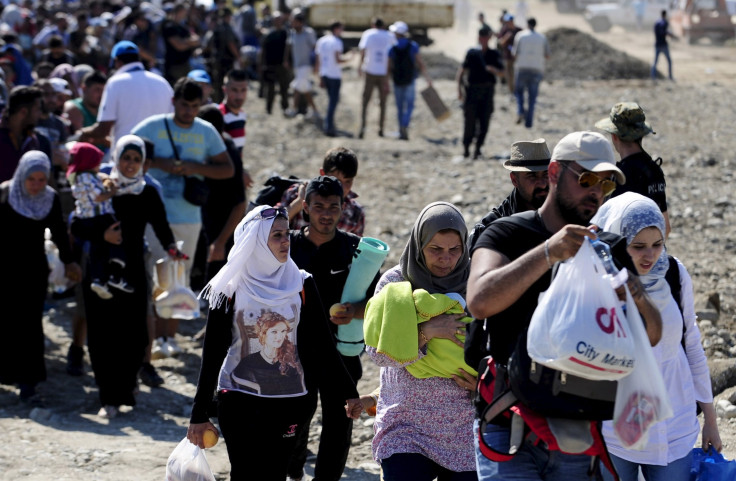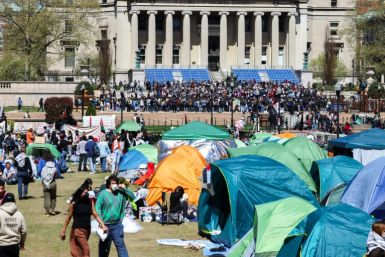Macedonian border forces allow thousands of refugees to cross

After days of resistance, Macedonian border forces have finally allowed thousands of migrants who have fled their countries to cross the border of Greece on Saturday. Police fired stun grenades at the refugees but failed to hold them back after they finally succeeded in breaking the barriers and pouring in. More than 6,000 people had already crossed into Serbia by Sunday afternoon.
The three days of face-off between the two groups have injured dozens, according to the Doctors of the World. The non-governmental organisation claimed that around 150 people sought medical assistance on Saturday after the forces used stun grenades on them.
Macedonian authorities declared emergency and sealed off its frontiers with Greece, leaving thousands stranded on no man’s land with very limited supply of food and water. This led to the violent clashes between Macedonian officers and the migrants for three days until they were allowed to cross border. The pressure that has so long been mounting over the Macedonian border has now reached the border town of Gevgelja, especially its railway station, from where the refugees can take trains or buses to the north to Serbia.
“A huge number of people have arrived and we expect the same intensity in the next day or two,” said Serbian Defence Minister Bratislav Gasic, who surveyed the area on Sunday. “Police are working in three shifts. Papers are being issued around the clock.”
Al Jazeera reported that while a large number of people managed to cross the borders earlier in the day, many have been sent back to Greece where they complained of harsh treatment by the Macedonian Police.
The refugees, mainly from Iraq and Syria, have been stuck in rain and other harsh circumstances since Thursday. The inability of the European authorities to tackle the huge influx of refugees into their territories is causing further plight to the already flummoxed migrants who were forced to leave their homes in terror. Some are fleeing civil war while some others claim to be economic migrants.
“There is a human catastrophe here, and all the EU, the European countries, are to be blamed for this,” said German politician Annette Groth during a visit to the “neutral” zone between Greece and Macedonia. “The refugees are not leaving their homes for fun.”
Contact the writer at feedback@ibtimes.com.au, or let us know what you think below.






